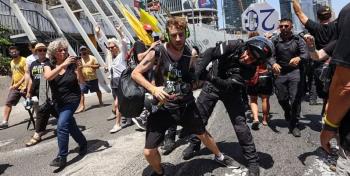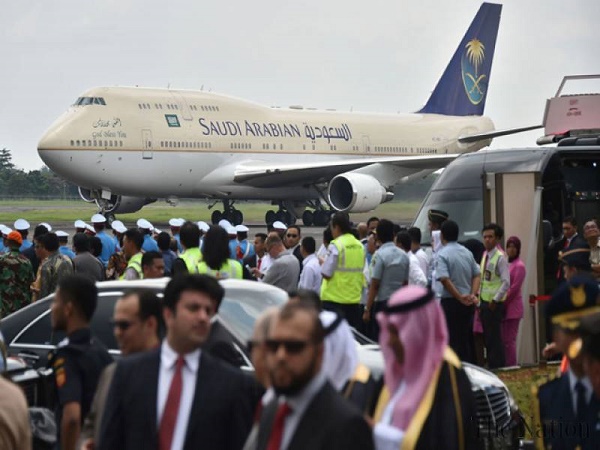Alwaght- The Saudi King Salman bin Abdulaziz Al Saud was scheduled to end his Asia tour that took him to Indonesia, Malaysia, Maldives, Brunei, Japan, and China with a visit to Jordan and then Lebanon. However, the planned visit to Beirut remains uncertain. Some Arab newspapers such as the Beirut-based Al-Nahar have reported that following President Aoun’s supportive comments on Hezbollah’s arms, the Saudi monarch has cancelled his trip to Lebanon.
On the other side, the Egyptian Al-Youm Al-Sabe’a news website has suggested that despite the fact that the Lebanon visit is not on the plan of the Saudi monarch's Asia tour, he very likely will visit Beirut as part of his nearly month-long foreign tour. The media circles close to the Lebanese leader have said that Lebanon recently received an official letter from Saudi Arabia in which King Salman accepted Aoun’s invitation to visit Lebanon.
Aside from these contradictory news which very clearly indicate that Beirut-Riyadh relations are shrouded in mystery, what is so clear is that the Saudi leaders were optimistic to open a new chapter of relations with Beirut and get Lebanon on the kingdom’s side after Michael Aoun was picked president of Lebanon. But a series of issues including Aoun’s firm defense of the Lebanese sovereignty, his adoption of a neutral but active policy, and supporting the Resistance camp have sent Saudi Arabia frustrated and angry at Beirut's current pathway.
The London-based Al-Arab daily last week in an analysis shed light on different aspects of possible cancellation of the king Salman’s trip to Lebanon, saying that Riyadh had expected to see a new page opened in its relations with Beirut after it prompted picking Saad Hariri as prime minister and Michael Aoun as president. Al-Arab continued that Saudi Arabia even chose its Minister of State for (Persian) Gulf Affairs Thamer Al-Sabhan to lead the Lebanese case to enhance the two sides' ties, a step showing Lebanon's case will remain special to Saudi Arabia.
But it appears that Saudi Arabia is disappointed by Michael Aoun’s Cairo remarks. The Lebanese President during his trip to Egypt said he welcomed an armed Hezbollah as a supplement to the army in defense of the country’s sovereignty and independence. Riyadh is now frustrated to see its failure in separating Lebanon from the Iran-led Axis of Resistance, taking the president’s Hezbollah-related comments as unhelpful to boost the Riyadh-Beirut relations.
On the other side, some sources close to Lebanon’s presidency noted that Beirut is engaged in efforts in association with some of its regional allies like Egypt to bring Syria back to the Arab League. Damascus was suspended from the Arab bloc following 2011 crisis. The upcoming Arab League's summit in Jordan, which presents Saudi Arabia with good scope to build coalition against Iran and the Resistance camp, will also provide Lebanon with opportunity to push for invitation of the Syrian government to attend the event in a bid to create some sort of balance and reconciliation. Attempts like this have made the Saudi leaders bristle at Lebanon’s Syria and Iran-related policies.



























